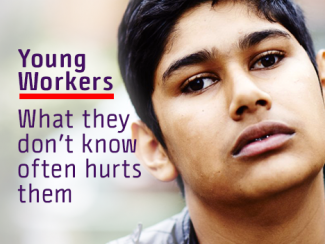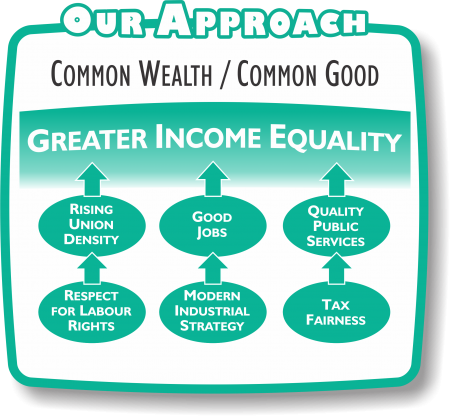FORCED LABOUR
Boss convicted of abusing teen workers

THE LAW CAUGHT UP WITH KAMALJIT BHALLA LAST MONTH. His mistreatment of teenage workers earned him a sentence of 15 months house arrest.
The guilty verdict came after the court heard how Bhalla essentially held two 16-year-old boys captive for three days on his remote construction site northwest of Edmonton, where he subjected them to repeated abuse.
Bhalla pushed, shoved and pulled the beard of the older boy, the court heard. Both boys were shoved to the ground, verbally insulted and punched over the following three days. Although they were on a construction site, they never received safety boots or gloves.
The impact on the two boys victimized by the bully boss in March 2017 has been devastating.
The teens, whose names are protected under a publication ban, shook at the front of the courtroom as they read victim impact statements describing their anxiety, depression, anger and sadness
The mother of one of the abused boys told CBC how her son was transformed, from a happy teenager who enjoyed hockey and going out, into someone who no longer wants to leave his bedroom and fears contact with people.
She told of how happy boys went from excitement to fear. “They are high school kids. So happy to have their first job. Now they don’t want to work for anyone. They don’t want to go out. They don’t trust anyone. He spoiled their lives. They had dreams. They never talk about their dreams any more.”
A violent workplace
The sad truth is that the scandalous treatment of these two teenagers is anything but exceptional. Whether it’s a violent boss, unsafe working conditions, or having children performing dangerous or inappropriate jobs, the mistreatment and exploitation of young workers is widespread across Canada.
A 2017 report by the Canadian Coalition for the Rights of Children (CCRC) captures the problem in some shocking statistics. Between 2013 and 2015, 23,711 young people aged between 15 and 19 suffered an injury on the job that caused them to be unable to work for a period of time. A total of 25 young workers lost their lives at work over the same period.
Many provinces do not even have a legal minimum employment age. One of them is British Columbia, where 18 young workers aged between 15 and 24 died on the job between 2012 and 2016, and over 32,000 were injured, 3,600 of them seriously. That’s an average of 14 per week.
Behind these numbers, thousands of young people’s lives have been turned upside down. Jack Thomas was aged 17 when the sleeve of his clothing became trapped in a conveyor belt. He lost half of his right arm.
Young people don’t know their rights
Mark Cherrington is the lawyer who represented the two teenagers in the case against Bhalla. He told us that what makes so many young workers so vulnerable is that a growing number of them don’t even know they have rights.
“Many of these workers don’t know where to turn when they’re injured. In Alberta, workers compensation hardly does any advertising. That’s usually done by unions.”
This is only made worse by the complete lack of clear procedures for dealing with such complaints. For example, Cherrington says the mistreatment of the two boys by Bhalla only came came to his attention through word of mouth.
Finding decent work now is pretty much a shot in the dark. If employers want things done, they just put up an ad online on private job banks. Many young people end up going from one bad job to the next.
Unionizing would help
Unions continue to work to win members among the low-wage workers in insecure jobs open to young people. Whether it’s pouring coffee at Tim Horton’s or working a summer job on a construction site, young people without unions are cut off from the very organizations capable of not only educating them about workers rights in the workplace, but also fighting to apply those rights.
Anti-union laws that prevent unions from winning members in low-wage, precarious jobs need to be challenged. Expanding the number of young people in unions will provide the means for them to defend their rights, and stand up against injustice and mistreatment on the job whenever it occurs.












Add new comment